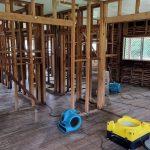Installing drywall requires a solid understanding of various techniques and strategies that are crucial for success. Whether you’re upgrading a room or replacing existing drywall due to wear and tear, having the right knowledge is essential to making informed decisions. Before engaging a handyman for your drywall project, it’s important to grasp several key factors. These include verifying the handyman’s licensing credentials, gaining insight into the cost of drywall installation, and ensuring you select a qualified professional who aligns with your specific project requirements.
Steps to Successfully Obtain a Handyman’s License for Drywall Installation Projects
If you’re planning to enter the drywall installation field, acquiring a handyman’s license should be a primary objective. While this credential isn’t mandatory in every state, many jurisdictions require it to ensure adherence to local building codes and regulations. Start by conducting thorough research on the specific licensing requirements applicable in your state. This proactive approach will help you understand the path you need to take to become a licensed handyman.
For minor tasks, such as painting or simple appliance repairs, many states do not mandate a handyman’s license. However, if you intend to tackle larger projects or renovations, separate licensing may be necessary for each specific undertaking, based on local laws and regulations. It’s advisable to familiarize yourself with these requirements to avoid any legal complications.
In addition to obtaining a handyman’s license, securing appropriate insurance coverage is equally vital. Having a contractor’s liability and property damage insurance policy will offer protection against any injuries or damages that may occur during the project. If you plan on hiring employees, it is also necessary to obtain workers’ compensation insurance to safeguard both your workers and your business. By thoroughly reviewing construction plans, you can effectively estimate material and labor costs, which will allow you to submit competitive bids without sacrificing quality.
When applying for a handyman’s license specifically for drywall installation, you must meet certain standards. For example, in Georgia, applicants are required to pass examinations related to trade, business, and law. Furthermore, having a minimum of two years of experience as a handyman, along with proof of general liability and workers’ compensation insurance, is a prerequisite. If your projects involve costs exceeding $1,000 or require construction permits in various jurisdictions, such as Hawaii, obtaining a general contractor’s license becomes essential.
While a handyman’s license for drywall installation may not be universally mandated, it is highly advisable if you plan to engage in more extensive work beyond simple repairs and installations. Each state outlines its requirements, but typically, they all necessitate having liability insurance and a handyman’s license to mitigate potential legal issues and protect against property damage claims.
To thrive as a handyman, it’s crucial to familiarize yourself with the diverse standards and licensing prerequisites across states. There are often significant variations in handyman licenses at the local level, so conducting comprehensive research is essential if you aim to handle various projects efficiently and effectively.
Comprehensive Breakdown of Drywall Installation Costs and Factors
The overall cost of drywall installation is influenced by a multitude of factors, including the scope of the project and the specific types of materials required. For instance, larger holes typically necessitate full drywall replacement, which can dramatically impact the total expense. Additionally, the quantity of materials needed will directly affect both material and labor costs, making it imperative to accurately assess the size and complexity of the job. A skilled handyman can often complete smaller tasks efficiently, often within a few hours, thereby keeping costs down.
Conversely, major drywall repairs stemming from extensive holes or water damage demand a greater investment of time and effort. In severe circumstances, the entire drywall section may need to be removed and replaced, which can elevate costs significantly. Such situations may call for the expertise of a professional with specialized skills, driving up the overall financial implications of the project.
Proper planning and meticulous preparation are paramount when undertaking drywall installation. Developing a comprehensive list of supplies and tools is crucial, and the overall cost will be determined by both the size of the area and the complexity of the job. Handymen often require assistance from additional workers, especially for larger projects, which can further influence labor costs. Furthermore, the installation expenses may vary based on whether preparation work and cleanup are necessary. Complex ceiling designs or numerous corners can also contribute to heightened material and labor costs, making careful consideration essential.
The type of drywall selected will play a significant role in determining the total installation cost. Standard drywall is the most commonly used material in most commercial constructions and is available in various widths and thicknesses to suit different applications. Choosing the right type ensures that the project meets both aesthetic and structural requirements.
For larger tasks, expenses can add up quickly. The overall cost heavily relies on the project’s size and intricacy. Smaller jobs might exhibit a higher cost per square foot; however, drywall remains a more economical option when compared to other construction materials, making it a popular choice for renovations.
While hiring a handyman may initially appear to be a cost-effective solution, enlisting the expertise of a drywall specialist can yield significant benefits. These specialists possess the advanced skills necessary for various tasks, from removing outdated popcorn ceilings to constructing modern drop ceilings. Their experience in taping joints and applying textures ensures a higher quality of workmanship. Moreover, they are adept at addressing issues such as water damage, hole repairs, and intricate textures, which can further enhance the overall quality of your renovation.
When selecting a drywall contractor, it’s imperative to secure a detailed contract that clearly outlines the project scope and associated costs. This contract should specify the number of drywall sheets required, the type of materials chosen, and provide a comprehensive breakdown of labor and material expenses to ensure transparency and accountability.
Effective Strategies for Choosing the Right Handyman for Your Drywall Project
Before hiring a handyman for drywall installation, it’s crucial to ask several key questions to ensure you make an informed choice. Start by inquiring about the estimated timeline for the completion of the project. Even the most skilled drywall installers often have differing schedules, so understanding the expected timeframe will help prevent dissatisfaction upon project completion.
It’s advisable to interview at least three potential handymen before making your final decision. During these interviews, ask about their experience, and be sure to request references from previous clients. Ensuring that the handyman you choose possesses the necessary skills and tools for the job is essential for achieving the best possible outcome. Additionally, confirm that their services align with your budgetary constraints.
Next, evaluate the potential costs associated with drywall installation. By comparing bids from various contractors, you can gain valuable insights into the prevailing rates for your specific project. A reputable contractor should provide a detailed cost breakdown that encompasses all materials, supplies, and any additional expenses to avoid unexpected financial burdens.
Verifying credentials and insurance is another critical step before hiring a handyman. Obtaining a written contract, along with references, can provide peace of mind and help you ascertain that the handyman is indeed the right fit for your project. Requesting examples of their previous work will offer further assurance regarding their capabilities and expertise.
A capable handyman should possess a diverse skill set, allowing them to manage a wide range of tasks. For instance, if your ceiling has a hole that requires drywall installation, a handyman should be equipped to handle that. They should also be adept at related tasks, such as installing new light fixtures or repairing popcorn texturing to enhance the overall aesthetics of your space.
Thoroughly check the handyman’s experience and references before making a commitment. An experienced handyman is more likely to execute the job competently, increasing the chances of a successful project. It’s wise to avoid contractors who employ high-pressure sales tactics or have inflated advertising budgets, as these may indicate a lack of genuine capability.
Keep your budget as a primary consideration when hiring a handyman for drywall installation. An efficient handyman should be able to complete the job promptly while respecting your property and minimizing disruption to your daily life. They should also prioritize cleanliness, ensuring that the workspace is tidy after the project is completed.
A handyman who is knowledgeable about plumbing and electrical systems is an excellent choice for addressing leaks or tackling related tasks. They can also assist with a broad range of projects, including hole repairs, light painting, deck repairs, and drywall installations, providing a comprehensive solution for your home improvement needs.
Finding a trustworthy handyman in your area is entirely achievable. Explore online reviews and seek recommendations from friends and family to gather insights on potential candidates. Additionally, don’t hesitate to ask your handyman for client references to verify their reputation and capabilities, ensuring you choose the right professional for your drywall project.
The post How Does a Handyman Do Drywall Installation? appeared first on https://gqcentral.co.uk
The Article Drywall Installation Techniques by a Handyman Was Found On https://limitsofstrategy.com




I appreciate how you emphasized the importance of understanding the various techniques involved in drywall installation. It’s a critical aspect that many DIYers overlook when they dive into home improvement projects. I recall when I took on the task of replacing drywall in my living room; I initially underestimated how vital it was to research the specific standards and techniques for hanging and finishing the boards. I learned the hard way that proper insulation and moisture barriers are just as important as the drywall itself, especially in areas prone to humidity.
Understanding the technical aspects of drywall installation is indeed crucial, especially when considering the long-term value and safety of a home. In my experience, ensuring that your handyman has the proper licensing can be pivotal, not just for compliance but for ensuring quality work. In my last remodeling project, I made the mistake of hiring someone who claimed expertise but didn’t have verified references. The result was a costly redo.